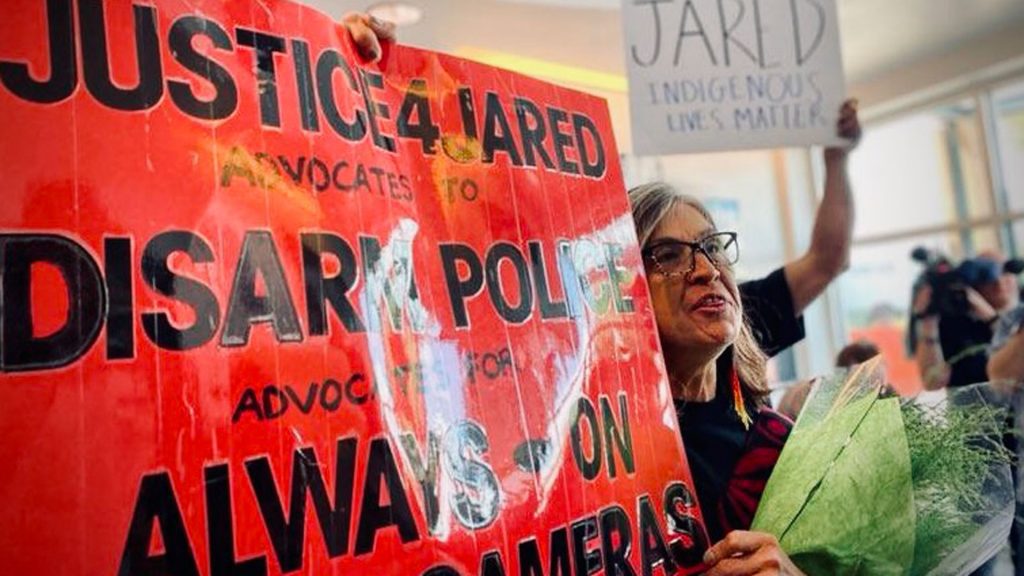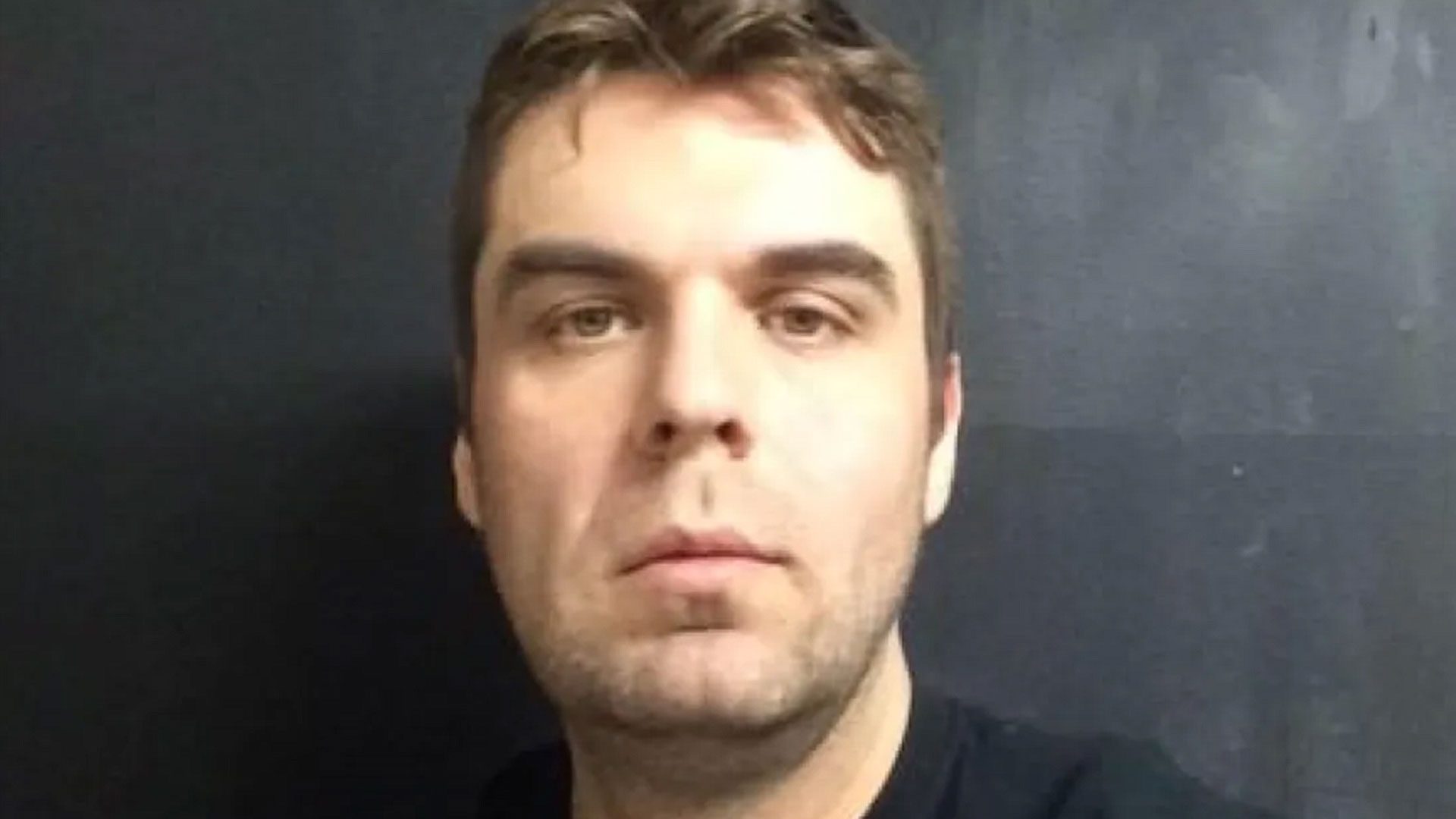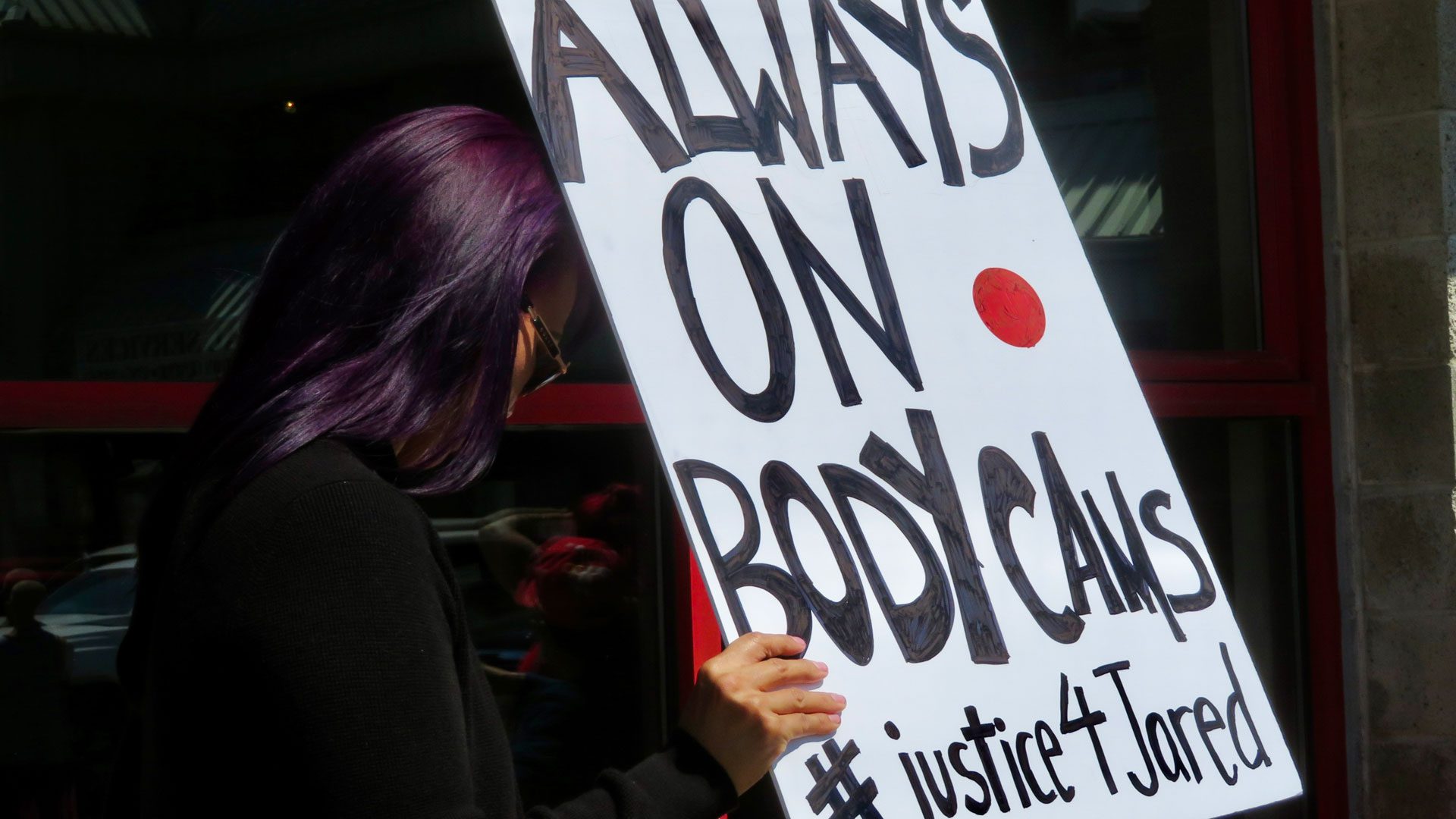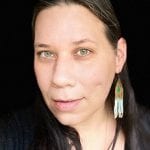
Mother Alunaye, Laura Holland brings specific calls to action to Campbell River RCMP. Photo by Odette Auger/APTN.
This article contains accounts of an Indigenous man who was shot by police that could be triggering. Please read with care.
Alunaye, Laura Holland, Wet’suwet’en of the Laksilyu House is very clear– her son’s death will have meaning.
“We want justice to be balanced,” Laura says. “RCMP need to be held to a higher standard of law, that is in place to protect every one.”
She’s channelling all her grief, anger, and love into a call to action.
Her son Jared Lowndes, 38, a father of two young girls, was shot and killed by the RCMP in Campbell River, B.C., on July 8. Police say officers were executing a warrant.
“During the interaction the Police Service Dog was stabbed and killed, and the suspect was shot and was pronounced deceased on scene. The Police Dog Handler was also treated for a knife wound. No other persons were injured,” the release from the RCMP says.
That family says police mishandled the arrest and changes need to be made.
“All across First Nations, we have the story of Indigenous folks who are being shot and killed,” she says. “We all have the same story. This is someone who was loved dearly.
“This is someone that belonged in our houses, in our clans, in our systems.“
Laura wants to see significant police reforms – including disarming of police and officers wearing “always on” body cameras.
“They walk around with their rifles, with their handguns and they startle people. Our kids are growing up in a generation, in a climate where the police can not be trusted,” says Laura.
The B.C. Civil Liberties Association (BCCLA) agrees with disarming police in certain situations.
In April it presented a set of recommendations to a special provincial committee looking at reforming the Police Act in B.C.
Largely focusing on de-escalation strategies, the BCCLA report recommends “a no-carry policy in Indigenous communities; or in urban areas with large Indigenous populations; and on calls involving Indigenous identified individuals as a first response.
“Vigorous and ongoing Indigenous trauma-informed de-escalation training and teams for Police, which include Indigenous Peoples and mental health professionals.”
Investigating the killing of Jared Lowndes

The investigation into Lowndes’ death is now in the hands of the Independent Investigation Office (IIO). It investigates any incidents where police come in contact with the public and an injury or death occurs.
There are people in the province who say the IIO is also in need of reforms.
The family of Jared Lowndes has spoken with officials from the IIO to talk about his death and where the probe is headed.
Laura says she’s asked that an Indigenous investigator be put on the case.
She says the family was originally told by the IIO that it may be possible to have an Indigenous monitor, on the case but Laura says, “that’s not what we asked for.
“We’d like to have an Indigenous investigator also because we’re constantly being investigated and targeted by non-Indigenous organizations and institutions.”
On Thursday July 22, Laura met with the IIO.
“I expected very little and that is what I got,” says Laura.
The family has the support of Phillip Stewart, grand chief of the Union of British Columbia Indian Chiefs.
“We support their calls for an Indigenous investigator and civilian monitor to be appointed by the Independent Investigations Office (IIO), as well as a public inquest into an incident that is but the latest in an unacceptable and racist series of Indigenous people dying through police actions,” Stewart says in a statement.
But the IIO says it can’t fulfill the request because it doesn’t know if anyone who works for the IIO is Indigenous.

Ron MacDonald has been head of the IIO as its chief civilian director since 2017.
In an interview with APTN News, he says doesn’t have permission to disclose this, even if IIO does have a process to track.
“In B.C. that information is private unless the person makes it voluntarily known. Having said that, I haven’t specifically asked those questions of our investigators,” says MacDonald.
This, despite calls for more Indigenous representation within the justice system.
BCCLA also recommended a strengthening of police oversight to the special committee in April.
It said that any oversight should be “truly independent and civilian,” the report says.
It recommended to have enhanced civilian oversight of policing in B.C., restrict the eligibility of people who can be appointed as the director of police services to those who are truly “civilian” and who have never worked for a law enforcement agency, either in Canada or elsewhere.
The IIO says that 48 per cent of IIO’s its “civilian and independent” team are from policing backgrounds.
MacDonald told APTN that many are lawyers or former police officers from jurisdictions outside Canada. MacDonald says he can’t hire a police officer if they’ve worked in B.C. within the last five years.
However, he says he has petitioned the government to allow him to hire retired police officers because he’s never been able to fully staff the 30 investigator roles because “it’s a challenge to find fully experienced people.”
The IIO is currently approved to hire up to 30 investigators plus three forensic investigators and one traffic reconstructionist,” according to the spokesperson.
Civilians must be in charge and complete investigations

Carly Teillet, is a Métis community lawyer for BCCLA.
She says there is a need to establish a robust and well funded Indigenous civilian police oversight body.
This needs to include representation of a diverse range of people who are impacted by police violence, and representation with the different legitimate Indigenous governments that exist all across British Columbia.
Teillet says while IIO investigators “may have spent their entire career honing investigating skills as part of being a police officer, that doesn’t mean they’re able to then challenge pro-police bias or actively challenge racism or sexism or whatever may happen in the course of an investigation.”
BCCLA is calling for a larger structural change, as Teillet describes, “a shift that needs to happen, both civilian and with Indigenous decision-makers and Indigenous concepts of justice and people with lived experience as part of that oversight.”
She notes this in line with the United Nations Declaration on the Rights of Indigenous Peoples (UNDRIP).
“Bringing UNDRIP into force in British Columbia, but also in keeping with the national inquiry calls for revising policing in this country,” she says.










